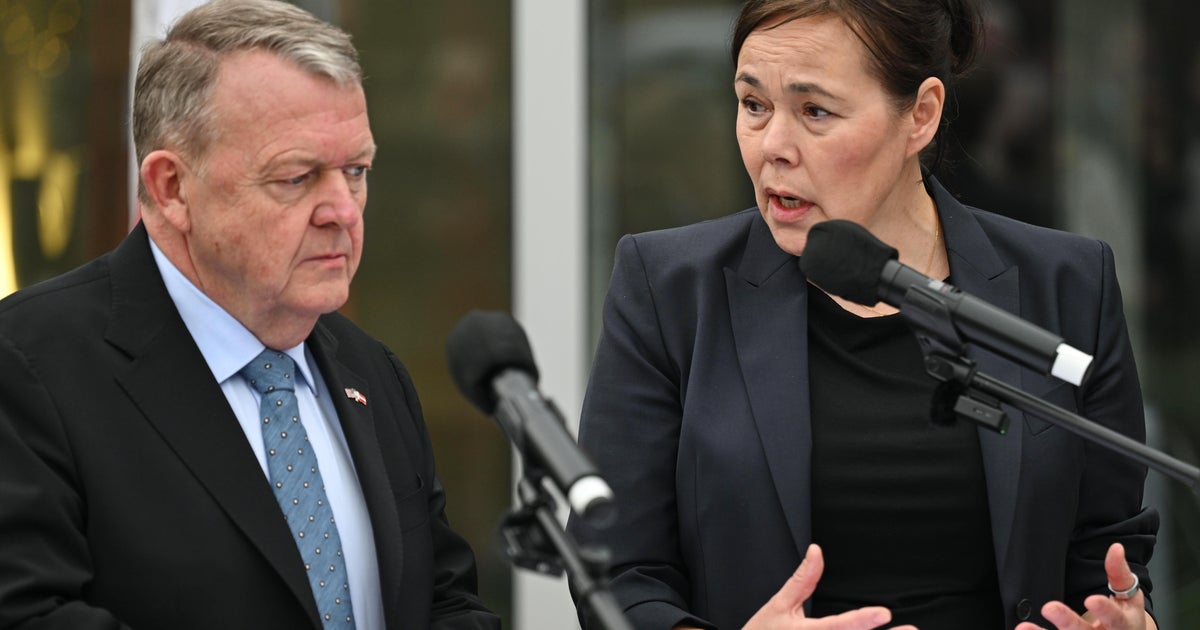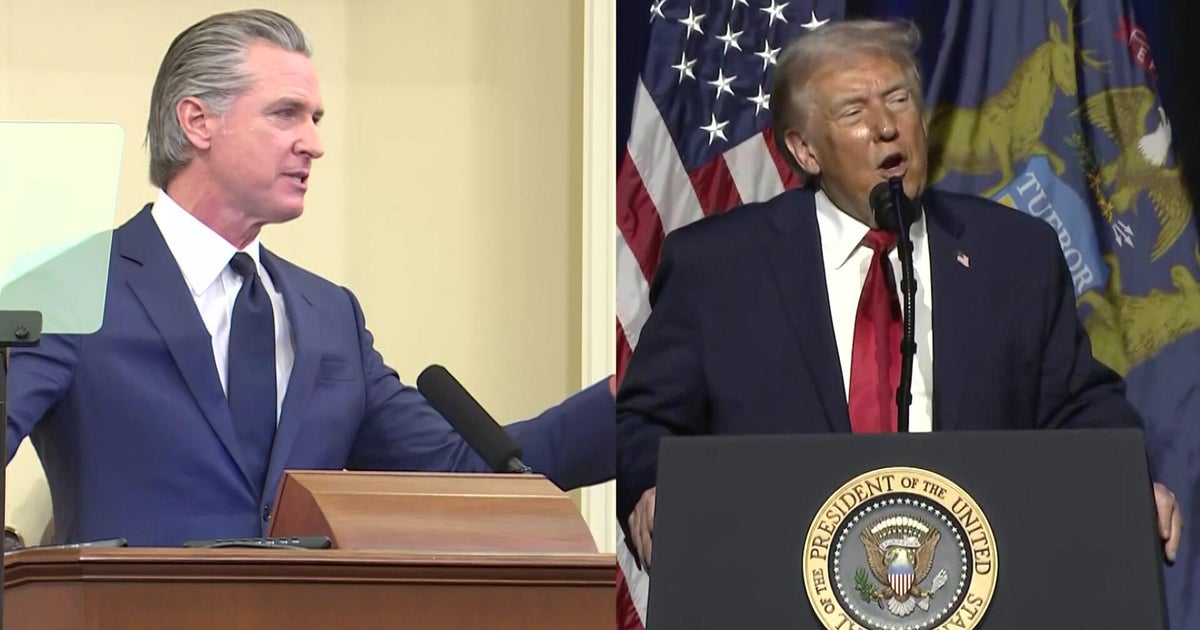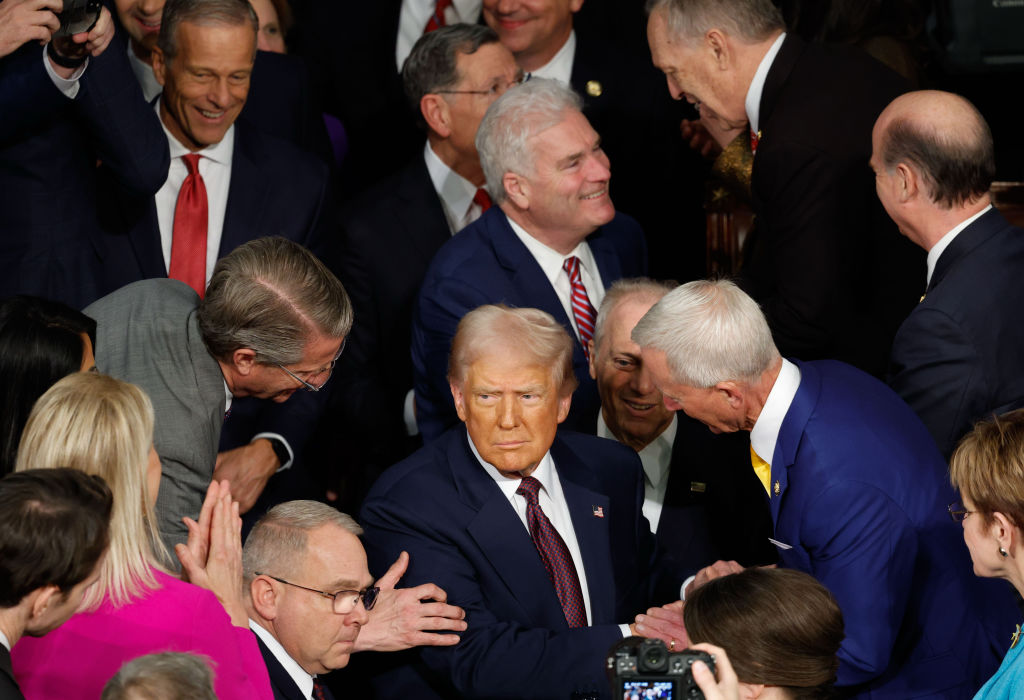In the heart of Trump Country, his base’s faith is unshaken
For the first time in its 147-year history, Elliott County, Kentucky, abandoned its Democratic roots to help send Donald Trump to the White House. Almost a year into his presidency, despite dismal approval ratings and few legislative achievements, Trump remains profoundly popular here in these mountains, a region so badly battered by the collapse of the coal industry it became the symbolic heart of Trump's white working-class base.
Here are voices of voters who helped put him in office.
___
"A DEAL IS A DEAL"
Dale Ferguson wanders the aisles of his store, a 9 mm gun loaded with hollow-point bullets tucked into the back of his camouflage cargo pants, just in case. He sells just about everything here: fresh meat, banjos, fishing poles, guns, selfie sticks.
"This is like Walmart," he says, "except way smaller and poorer."
For four generations his family has owned Ferguson's Market and Hardware in Isonville, Kentucky. The business hasn't changed much, and neither has Ferguson. He has three priorities in life and in politics, in this order: God, guns, family. Like it used to be, he says. And now he sees himself reflected in America's pugnacious president.
"I tell it like it is," he says. "I don't have many friends because I'm not politically correct."
He studied Donald Trump's ascent for years, and he always pulled for him to run for the White House. So far he gives him two thumbs-up, mostly for fighting the culture wars. He doesn't mind his Twitter battles with foreign leaders, celebrities and senators, and he dismisses everybody up in arms over Trump not being "presidential." That's what he liked about him in the first place.
"It wouldn't bother me a bit if a guy ran that was dressed like me, and I look like a heathen," he says, gesturing to his camo pants tucked into his boots, his wrinkled T-shirt, his five o'clock shadow. "I don't believe in all that suit-and-tie, hold-your-fork-a-certain-way stuff."
Still, Ferguson doesn't consider himself among Trump's base of supporters who will follow him no matter what. The president must make good on his promises, he said, and that list is long: He has to build the wall, bring back coal, finish tax reform, repeal the health care law.
"He has to prove he's real."
He was mad when Congress failed to repeal and replace the health care act, like Trump and other Republicans had promised. He pays the penalty, because he thinks it's un-American for the government to force him to do things like buy insurance or wear a seatbelt. But he didn't blame Trump; he blamed all the other politicians.
"All the other politicians, Republicans and Democrats before him, they're interested in one thing only and that's theirselves. And Donald Trump seems to be more interested in the American people," he says, and shrugs. "Unless he's fake, and he ain't been in there long enough to see yet."
___
"THEY'RE REALLY OUT TO CRUCIFY HIM"
Dwight Whitley has never met Rush Limbaugh. But he spends so much time behind the wheel of his truck listening to his radio talk show, it almost feels to him like they're friends.
He doesn't trust much other media. He turns on Fox News in the morning, but sometimes even that seems too liberal. He believes the news media is in cahoots with the Democratic Party, and if they had their way he thinks they'd try to control society and round up everyone's guns.
"Oh, don't shake your head at me, Flo," he says to his wife.
"I'm just trying real hard to keep my mouth shut," she says.
"I'm more fanatical," he confesses.
"He's a bit more radical," she agrees. "But we have similar views."
Whitley was, like most people here, a registered Democrat for 48 years, until President Barack Obama was elected and he got fed up with the party, which he says is for "abortionists and gun grabbers for gay rights."
When his wife, still a registered Democrat and the editor of the local weekly newspaper, first heard that Donald Trump was running for president, she laughed; she actually thought it was a joke. But eventually she came around to him.
Whitley's great-grandkids call him Ho-Ho, because he looks like Santa with a long white beard. And he is something of a local celebrity. He's a banjo player and the brother of bluegrass legend Keith Whitley, so beloved here that the date he died can be rattled off by many from memory. It is, for them, like the day Elvis died.
He jams every week with lifelong friends — who aren't Trump supporters. So on that night, Whitley tries to keep his political opinions to himself.
"Trump is working hard and doing some really good things," he says, sitting in a rocking chair, an antique shotgun above the mantle behind him, with a Confederate flag sticking out of the barrel. Whitley says he likes Trump's tough talk, his stance on guns and immigration and religion.
He's seen more coal trucks on the roads, and that gives him hope that the blue-collar economy is improving like Trump promised it would.
"Congress is not helping, and the news media, they're really out to crucify him. If it was up to them he would be in the electric chair."
He says he'd definitely vote for Trump again. But his wife is waiting: "He'll have to work every day to get my vote."
"He still bothers me sometimes," she says. "He's got an ego that just stands in the way."
___
"THERE'S OUR MAN"
Angela Whitley's 5-year-old son salutes the television when he sees Donald Trump. He has his own red "Make America Great Again" cap he likes to wear, and he mimics Trump's signature thumbs-up.
He picked up his love for Trump from his dad, whose death in a car accident at 32 years old shook the Sandy Hook community. His pictures line the walls of the Frosty Freeze, along with a framed tribute from the Kentucky House of Representatives.
Courtney Pennington didn't get a chance to vote for Trump. He'd been a lifelong Democrat — until he and his best friend, Steven Whitt, watched one of the first Republican primary debates of the 2016 election.
"They would one-line him and he would one-line them right back. Courtney said, 'There's our man,'" Whitt remembers. He always wanted one of those red caps, but he died before he could get one. Not long after, Whitt saw a shop selling Trump merchandise. He stopped, picked up two caps and took them to the cemetery. He put one on, and "I took the other hat and laid it on his tombstone," he remembers. "I knew that was probably as close as we were going to get to wearing our hats together."
He then gave one of the caps to Pennington's son.
Angela, also a lifelong Democrat, is a Trump supporter, too. At 32, she has four kids and she works. She doesn't have a lot of time to watch the news and she prefers not to, anyway. She doesn't think a year is enough time for Trump to have made much of a difference, and she's willing to wait for results.
"He's straightforward. He's different," she says. "I don't know. He has that attitude about him. I like it."
___
"VOTE TO UPSET THE FRUIT BASKET"
As Reggie Dickerson watched the presidential primaries unfolding in 2016, it seemed to him like nobody in Washington wanted Donald Trump to be president — not Democrats, not Republicans, not the media.
"My thinking was this: They've all got their own little racket there in Washington, and I'm going to vote to upset the fruit basket, and I did. And I'd do it again. I will do it again."
To Dickerson, like many others in Elliott County, President Barack Obama has come to represent all the things he believes have gone awry. There are the environmental regulations he signed to try to curb carbon emissions that many blame for the decimation of the coal business. But Obama has also become a symbol to him of a changing nation: gay marriage, immigrants, lost blue-collar jobs that left families on welfare, a widely held fear that the government might take their guns.
"In rural Kentucky, he destroyed our way of life," declares Dickerson, a 52-year-old pipefitter, a father of two teenagers and a registered Democrat. He points to these examples: There was an Iranian flag hanging in a car repair shop he happened into recently while working out of town, he says. He's seen immigrants working in factories in the state. He saw a sign for a program that gives cellphones to the poor for free.
"Everything can't be free," he says. "I don't want to come across as somebody that's cold. I'd help anybody if they need help. But it burns my rear end when it's somebody just as able as I am. Does that not bother you?"
His county had voted for the Democrat in every presidential race since it was founded, until Trump. And now he thinks Trump ought to return the favor.
"I want him to come here. Donald Trump owes it to Elliott County," he says. "I would love for him to come here, see the people, what's been taken from them, and help restore it."
His community suffered a one-two punch, he says. It lost the tobacco industry, and then coal. Families were left dependent on government assistance. And now they're depending on Trump to revive the coal business — and manufacturing across the country — and put people back to work. Dickerson thinks he's seeing optimistic signs.
He's not always crazy about Trump's bombast, but Dickerson doesn't think he's getting a fair shake from the media, and he understands why Trump feels like he needs to punch back. When Trump taunts the North Korean leader, many fret that he's provoking a war. But to Dickerson, that translates as toughness.
"Kim Jong Un, he just met a guy who's not going to put up with his crap," he says. "I think that's good."





